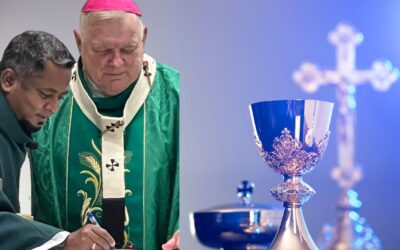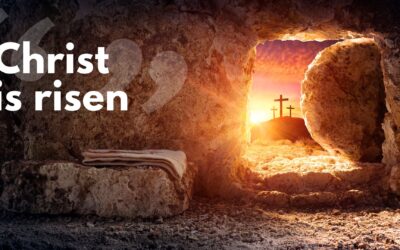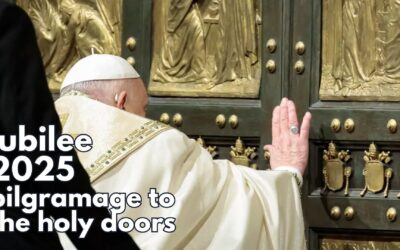Father Nathan Homily | February 23, 2020
Father Nathan | Homily
7th Sunday in Ordinary Time
Introduction:
Today’s readings explain why Christians are expected to be holy and how we are meant to become holy people. The first and second readings give us reasons why we should be holy, and the Gospel describes four methods of becoming holy people prescribed for us by Jesus.
Scripture lessons summarized:
In today’s first reading (Leviticus 19:1-2, 17-18), is aken from the book of Leviticus, teaches us that we should be holy because it is the command given to us by God through Moses:
“Be holy, for I the Lord, your God, am holy.”
It also shows us the way to share in God’s holiness:
“Love your neighbor as yourself.”
Responsorial Psalm (Ps 103), challenges us to be holy as our God is holy by becoming kind and merciful and forgiving, as He is to us.
“The Lord is kind and merciful.”
The second reading (1 Corinthians 3:16-23)
St. Paul gives us an additional reason to be holy. We are to keep our bodies and souls holy because we are the temples of the Holy Spirit, and the Holy Spirit lives in us.
Today’s Gospel (Mt 5:38-48), passages are taken from the Sermon on the Mount, Jesus teaches us four methods of becoming holy as God is holy.
Since God is holy, we are to be holy. We are holy when we imitate the generosity of God exacting vengeance, or bearing a grudge against another. The commandment is
“You must love your neighbor as yourself”
is restricted to fellow Israelites. But Jesus broadened it to include everyone. Gentiles as well as Jews, enemies as well as friends.
Why? Because this is the way the heavenly father acts. He shows equal love towards good and bad, not because he is indifferent to morality, but because he loves without limit. St. Paul gives us a profound reason why we should respect one another; we are Temple of God. Individually and collectively the Holy Spirit dwells in us. This is also basis of our unity.
Life Messages We need to Become Holy:
1)The first methodis to abstain from all forms of retaliation.
Jesus discards even the milder form of retaliation developed by Hammurabi in ancient Babylon and passed on to Israel through Moses. The policy was one of limited, proportional retaliation (Lex Talionis, “tit-for-tat”): “an eye for an eye, a tooth for tooth,” rather than allowing unlimited vengeance.
In place of this limited, proportional retaliation, Jesus gives his new law of love, grace, forgiveness, reconciliation and no retaliation. For Jesus, retaliation, or even limited vengeance, has no place in the Christian life, even though graceful acceptance of an offense requires great strength, discipline of character, and strengthening by God’s grace.
2) The second method of becoming holy as God is holy is to take the offense gracefully and love the offender.
Jesus illustrates this in three images:
“turning the other cheek,
freely giving the tunic and
adding the cloak to it and walking the extra mile.”
Jesus tells us that what makes Christians different is the grace with which they treat others, offering them loving kindness and mercy, even if they don’t deserve this treatment, as God does for us.
We are commanded to love our enemies as Jesus loves us, with agápelove, not because our enemies deserve our love, but because Jesus loves them so much that he died for them as he did for us.
3) The third method of sharing in God’s holiness is by unconditionally and whole-heartedly forgiving the offender without planning revenge in any form.
This means not only loving one’s neighbors, but also forgiving those enemies who hurt us and seem willfully to cause us suffering, hardship and unhappiness.
4) The fourth method of becoming holy as God is holy is to seal our determination to forgive our enemies by sincerely praying for their spiritual and physical welfare and for the grace needed for their conversion and renewal of life.
Thus, today’s Scripture readings challenge us to become holy as our God is holy by loving, forgiving, and blessing others, even our enemies with graceful and magnanimous love, as our Holy God does.
Amen…
Wishing you and Your Family a Year Filled with Holiness and Grace!
Have a Blessed Week,
Fr. Nathan
Join our Parish Family
Register in the parish, so that it’s easy to become a confirmation sponsor or Godparent.
Want to Lend a Helping Hand?
Find volunteer opportunities and share your talents.
Need a Helping Hand?
We are here to help. Request home visits, send a prayer request. For urgent needs call 954.943.3684
Coming Soon
Set up Online Giving.
You can make a one-time donation or set up recurring gifts.
Past Messages from Father Nathan
From The Desk Of Father Nathan | May 18, 2025
Thank You For Celebrating with me
I want to take a moment to express my heartfelt thanks to each and every one of you who came together to celebrate my ordination anniversary. Your love, generosity, and joyful presence turned the day into something truly unforgettable.
From The Desk Of Father Nathan | May 11, 2025
Celebrating my 21st Ordination
May 10
This week, I will celebrate my 21st Ordination anniversary. I DO NOT like any celebrations for me personally, but when the priesthood is celebrated, I really like it. It’s not the person but the priesthood of Christ…
From The Desk Of Father Nathan | April 20, 2025
Easter Sunday. The resurrection of Jesus Christ is the cornerstone of the Christian faith. Fulfilling God’s plan of redemption and the promise of eternal life.
From The Desk Of Father Nathan | April 13, 2025
Holy Doors Pilgrimage Trip Report. We are back, healthy and renewed. We had a great pilgrimage to Rome and Assisi. Everyone stayed healthy. The places we visited were more than I expected! I have realized that I have yet to learn an ocean of knowledge about our Catholic faith.
From The Desk Of Father Nathan | April 06, 2025
Become a Prayer Warrior. Time is Precious & With Age we Gain Time. There is no doubt that most of our parishioners are age 63 plus. Some may be quick to assume that because of our age, we cannot do a lot to contribute to the community and to society. It’s so unfortunate to think that.
From The Desk Of Father Nathan | March 30, 2025
I am in Rome on the Holy Doors Pilgrimage with a Group of Parishioners. Please keep us in your prayers. Preparations have begun for Holy Week and Easter. We have planned the liturgies and all the details they involve. I wish and pray that our people have a meaningful celebration of Holy Week and Easter.




